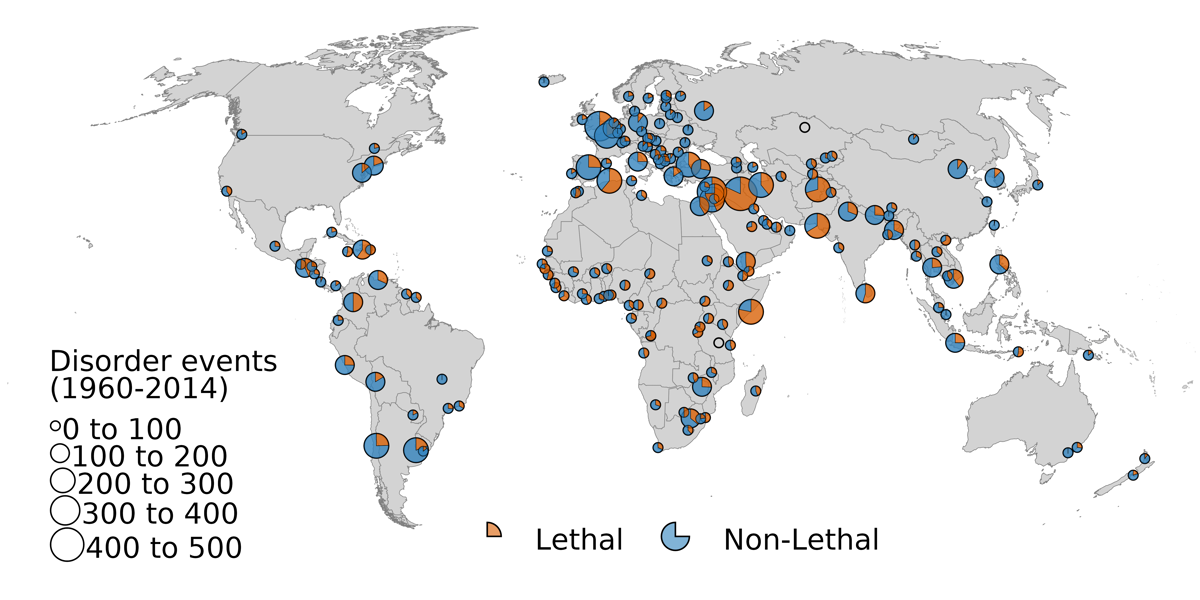This article presents the global extension of the Urban Social Disorder (USD) dataset, which can be accessed from this page.
The world’s population is increasingly concentrated in cities. Research on urbanization’s implications for peace and security has been hampered by a lack of comparable data on political mobilization and violence at the city level across space and through time, however. Urban Social Disorder 3.0 is a detailed event dataset covering 186 national capitals and major urban centers from 1960 to 2014. It includes 12 types of nonviolent and violent events, detailing the actors involved and their targets, start and end dates of each event, and the number of participants and deaths. We provide an overview of the main features of these data, and trends in urban social disorder across space and time. We demonstrate the utility of the dataset by analyzing the relationship between city size and the frequency of lethal disorder events. We find a positive relationship between city population and lethal urban social disorder, unlike previous studies. These new data raise promising avenues for future research on democratization; climate change and food security; and spillovers between different forms of mobilization and violence.









